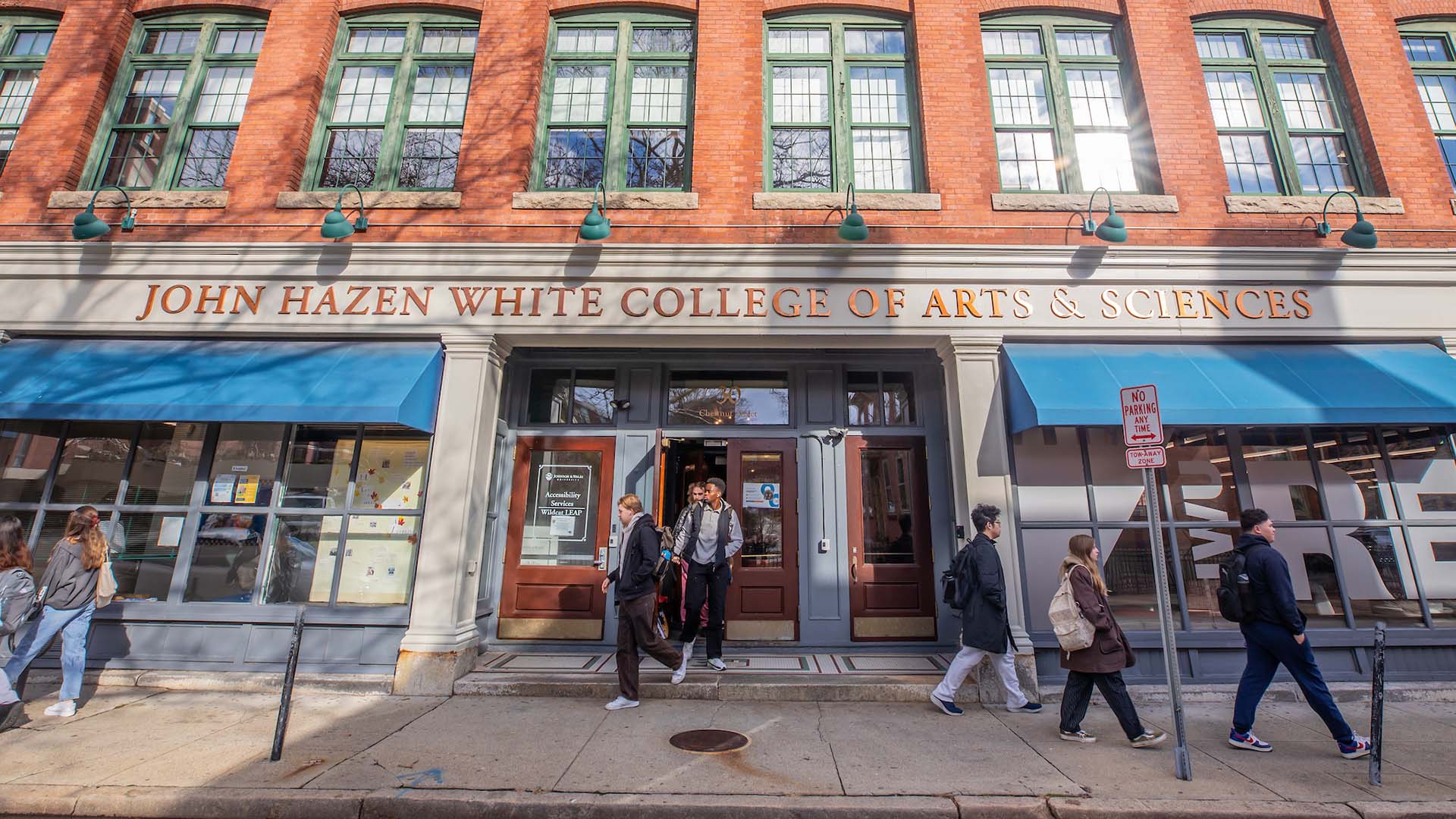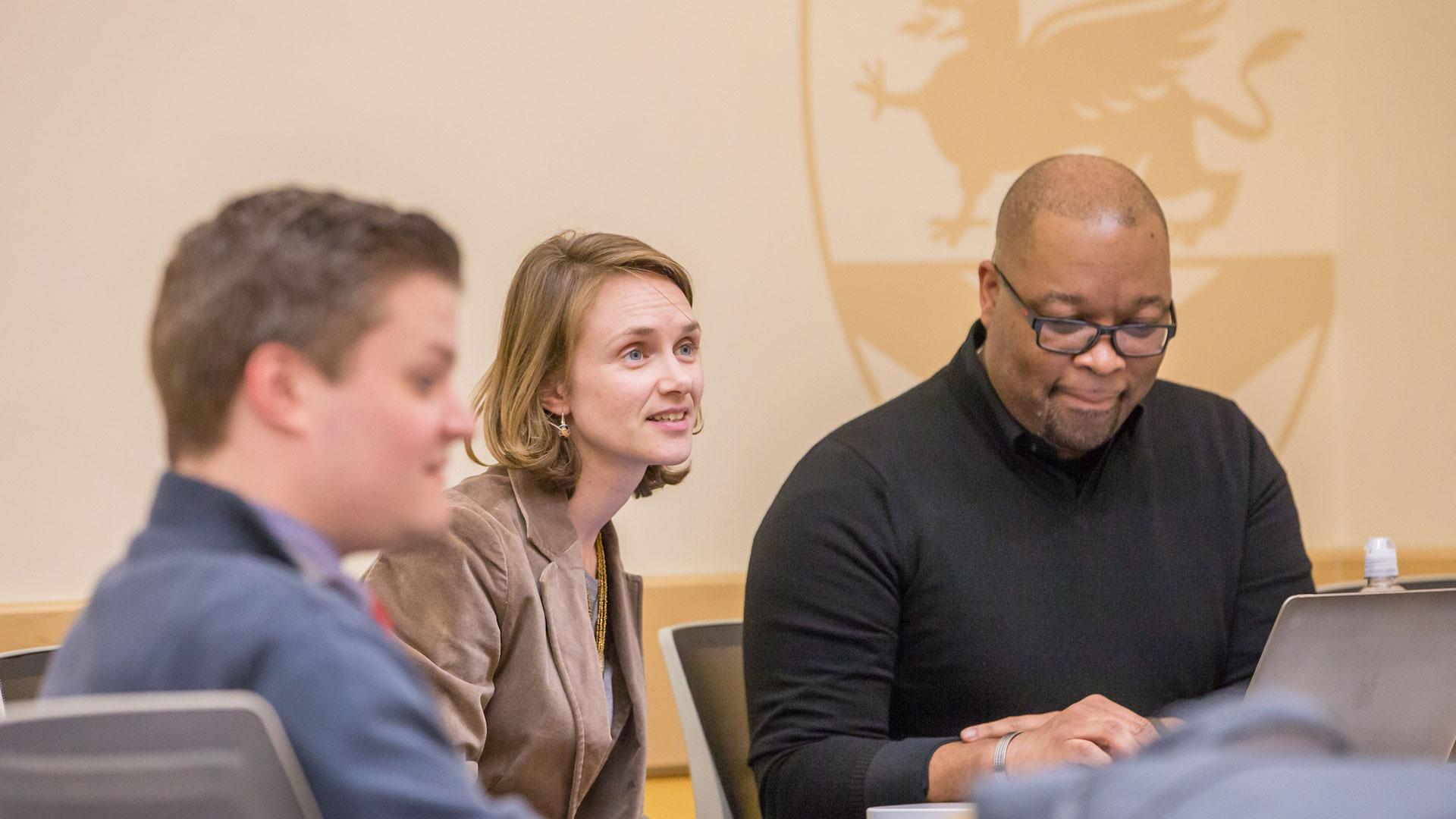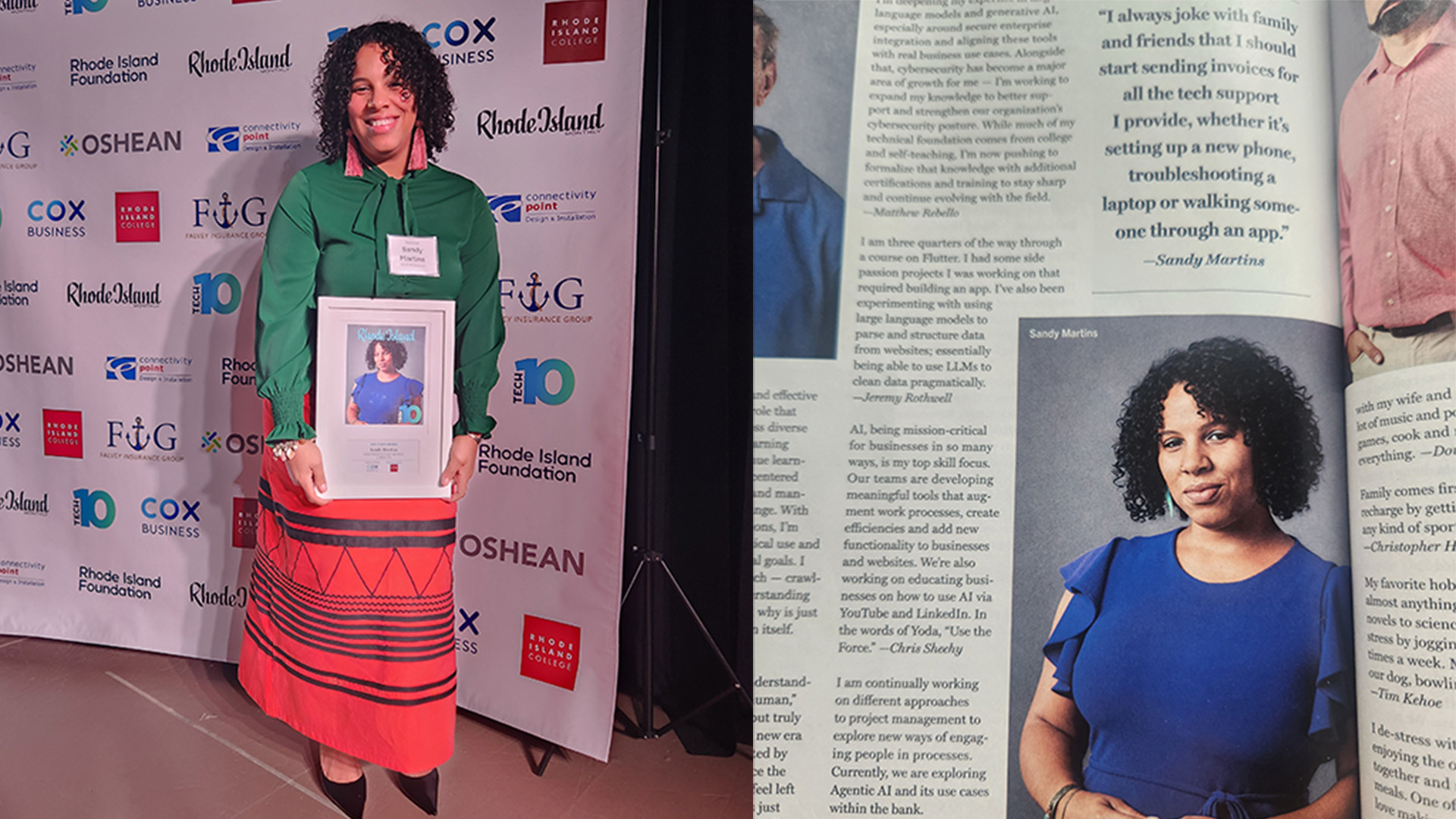JWU Hacks: Students Focus on Winning MLH Hackathons
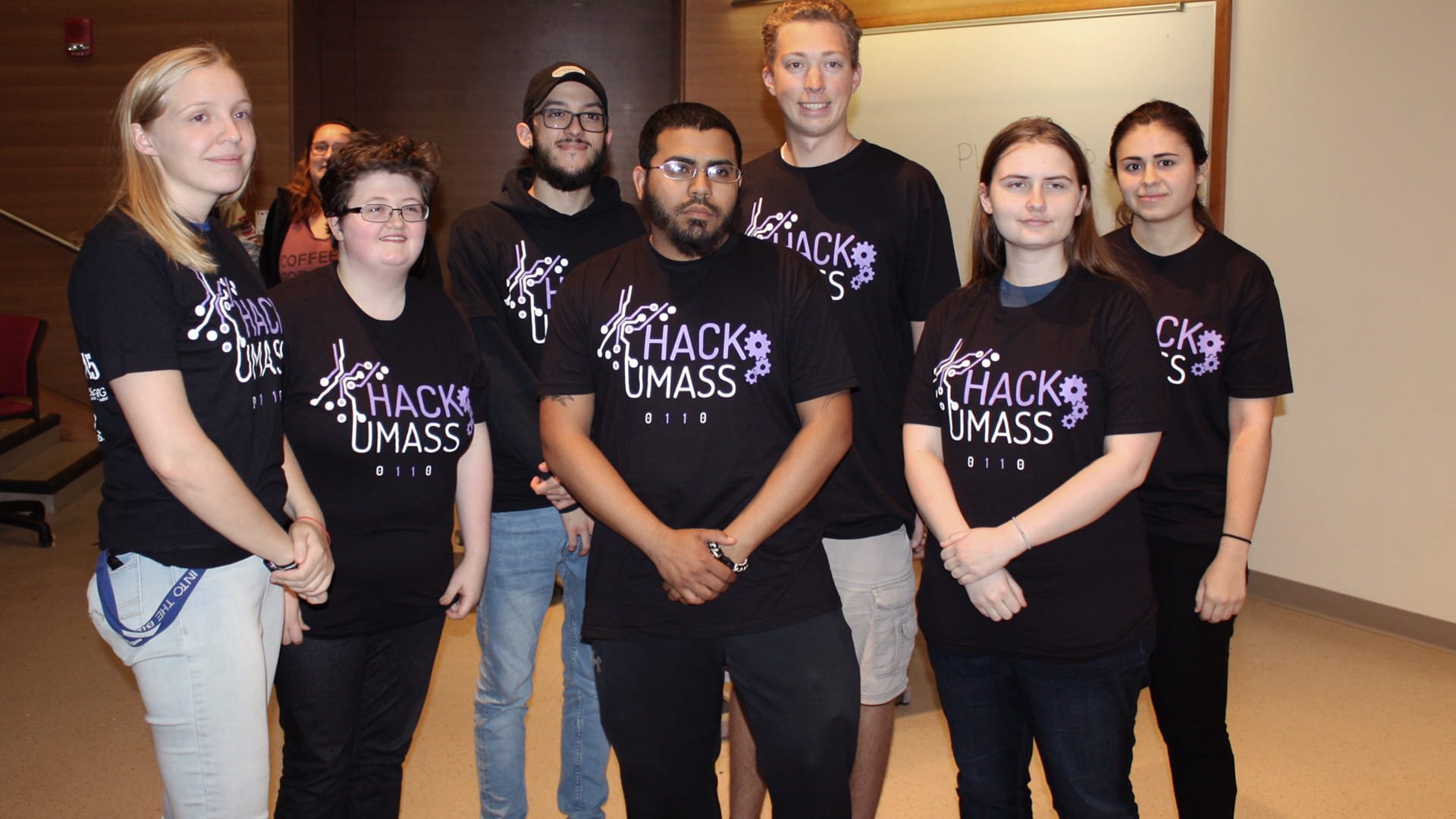
A group of students at JWU’s College of Engineering & Design are extra busy this year. They’re working on earning points to make JWU the university with the highest participation in Major League Hacking (MLH) events this year.
They’re making their mark. Since February, they’ve been to nine hackathons, picking up awards along the way and gaining tons of experience.
“What makes us different from other schools is the hunger that we have to put our school on the map,” says Kenneth Morales ’20, a Cyber Threat Intelligence & Defense major.
JWU’s participation in these hackathons is at an all-time high this year, with students from all engineering majors signing up individually and in groups. Most of the events, sponsored by MLH, take place at universities across the U.S. And so far, students have been to hackathons at Stony Brook University, UMass Amherst, Cornell University, Harvard University, Wellesley College and Mount Holyoke College.
"What makes us different is the hunger that we have."
Attending Classes and Hacking at the Same Time?
Being active in the hackathon circuit takes time and dedication. And from the start, students know there’s a trick to balancing it all.
“It comes down to the commitment that we make,” says Morales. “When we recruit new people, we’re very straight forward with them from the beginning. If this is something they want to do, we’re honest, we work round the clock.”
Dennis Collins ’19, Robotics Engineering, agrees. “This is not a job or club — it just kind of becomes part of your lifestyle,” he says. Collins has participated in two hackathons during college, and recently discovered there’s a larger group of active hackers at JWU.
“Finding these guys has been great because we’ve been able to merge what both of our clubs do. We are more hardware based and they’re a lot more software based. And coming together has been phenomenal,” Collins adds.
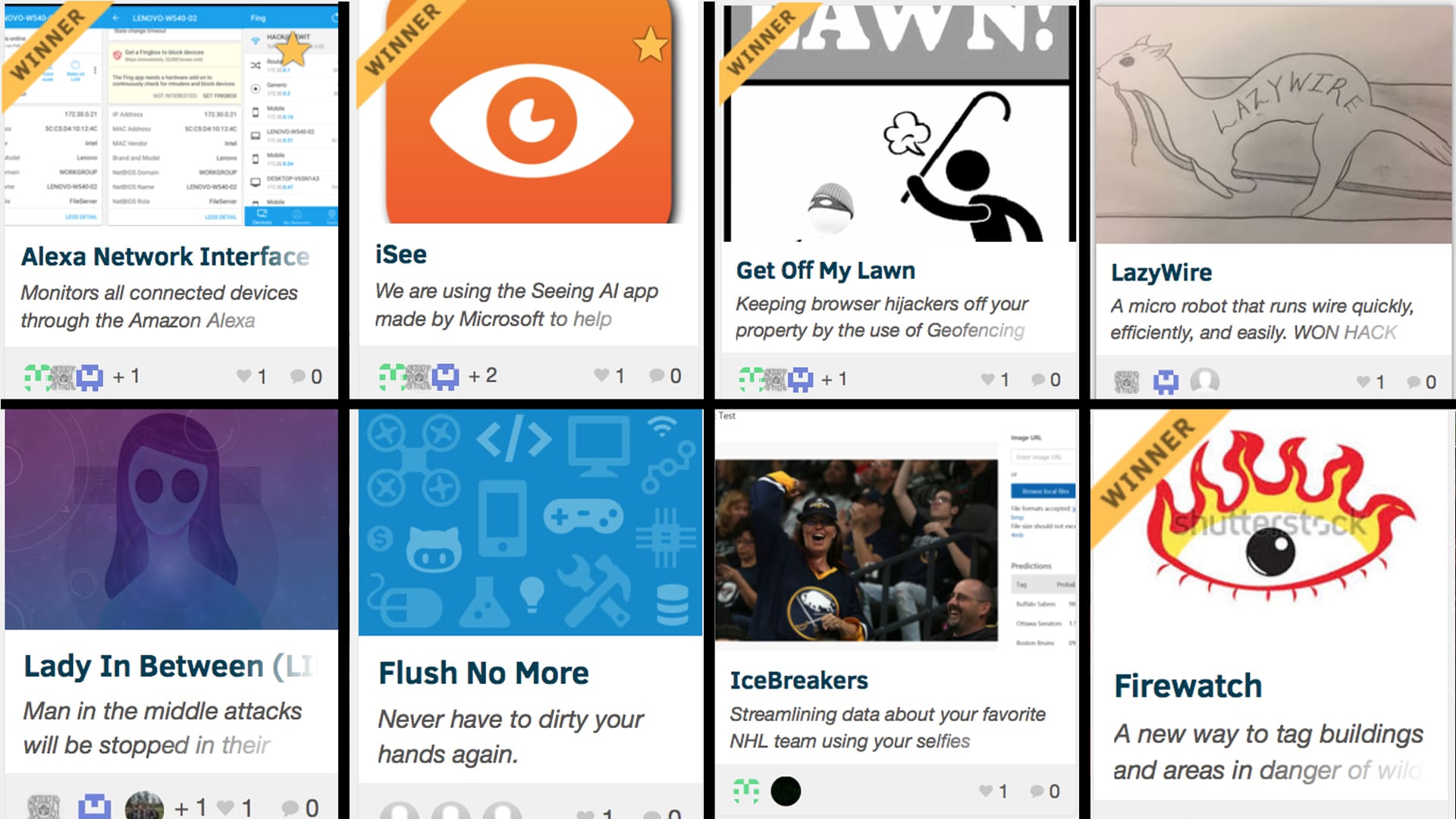
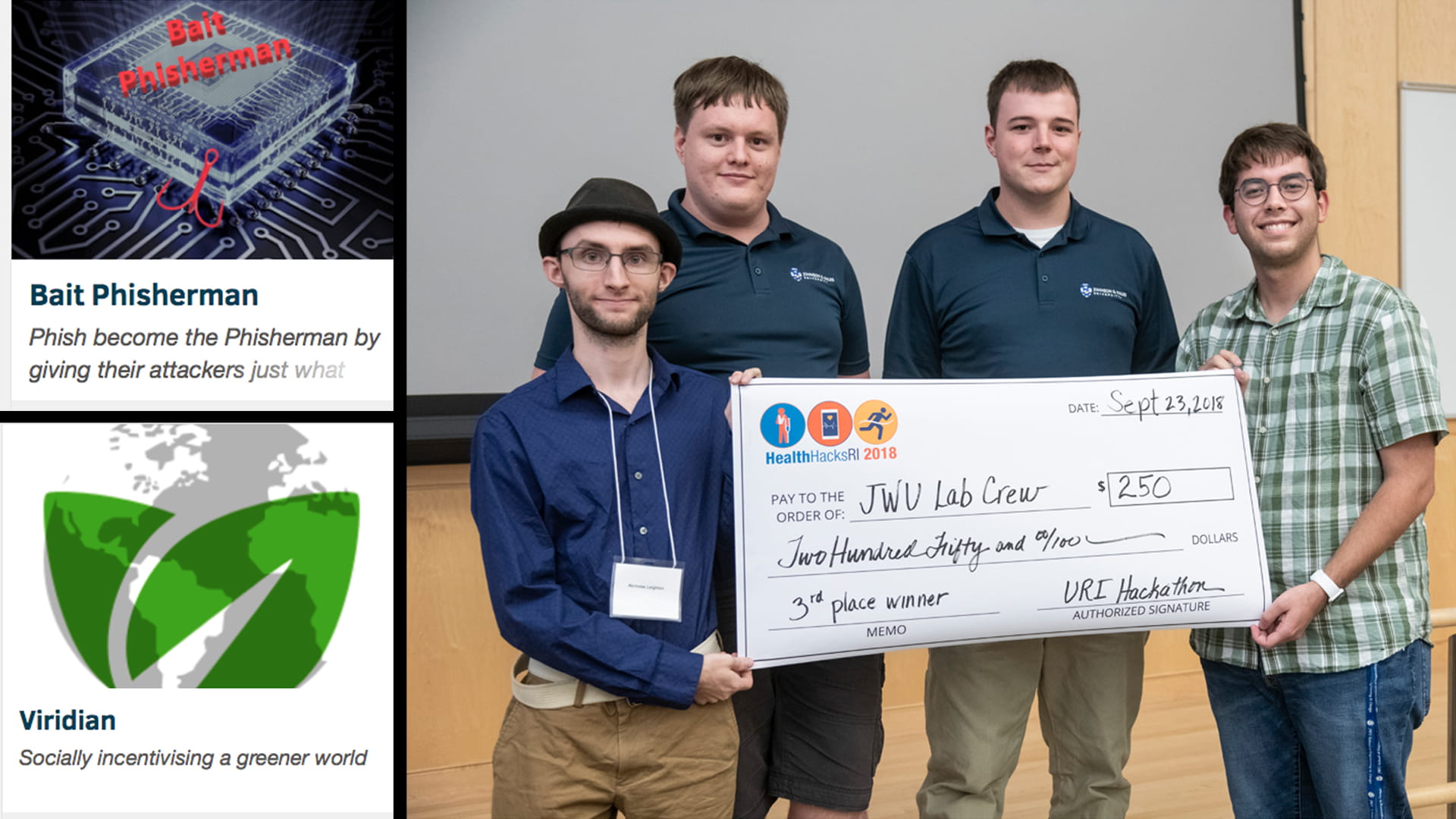
Working Together to Grow JWU’s ‘Think Tank’
“This is actually like a think tank,” says Morales. “Now that we’ve become more veterans in the MLH scene, we know what we’re doing. We meet almost every day to work, always trying to get ahead by looking at the categories and the requirements that MLH is looking for and then we just work.”
Morales adds that participating in hackathons is about more than just winning. “It’s more about creating an image and changing how people look at Johnson & Wales. That’s why we’re recruiting so many freshmen, because we know we’re not going to be here forever. We want to create a legacy for those who come after us. We want this to continue,” he says.
"We want to create a legacy for those who come after us."
Why hackathons?
On their website, MLH describes hackathons as “invention marathons.” Every year, MLH “powers over 200 weekend-long invention competitions, or hackathons, that inspire innovation, cultivate communities and teach computer science skills to more than 65,000 students around the world.” Hackathons offer students access to the latest technology, as well as to the wider computer science community. Each event can last anywhere from 24 to 72 hours.
“I really enjoy [hackathons],” says Collins. “They’re really competitive but at the same time you meet a lot of cool people.”
Hackathons not only offer students a space to create, they also allow the students to build their network. “It’s a great networking opportunity for us,” says Sarah Andraka ’20, a Cyber Threat Intelligence & Defense major. “We don’t just meet other competitors. We also meet people such as sponsors and other key people in the industry.”
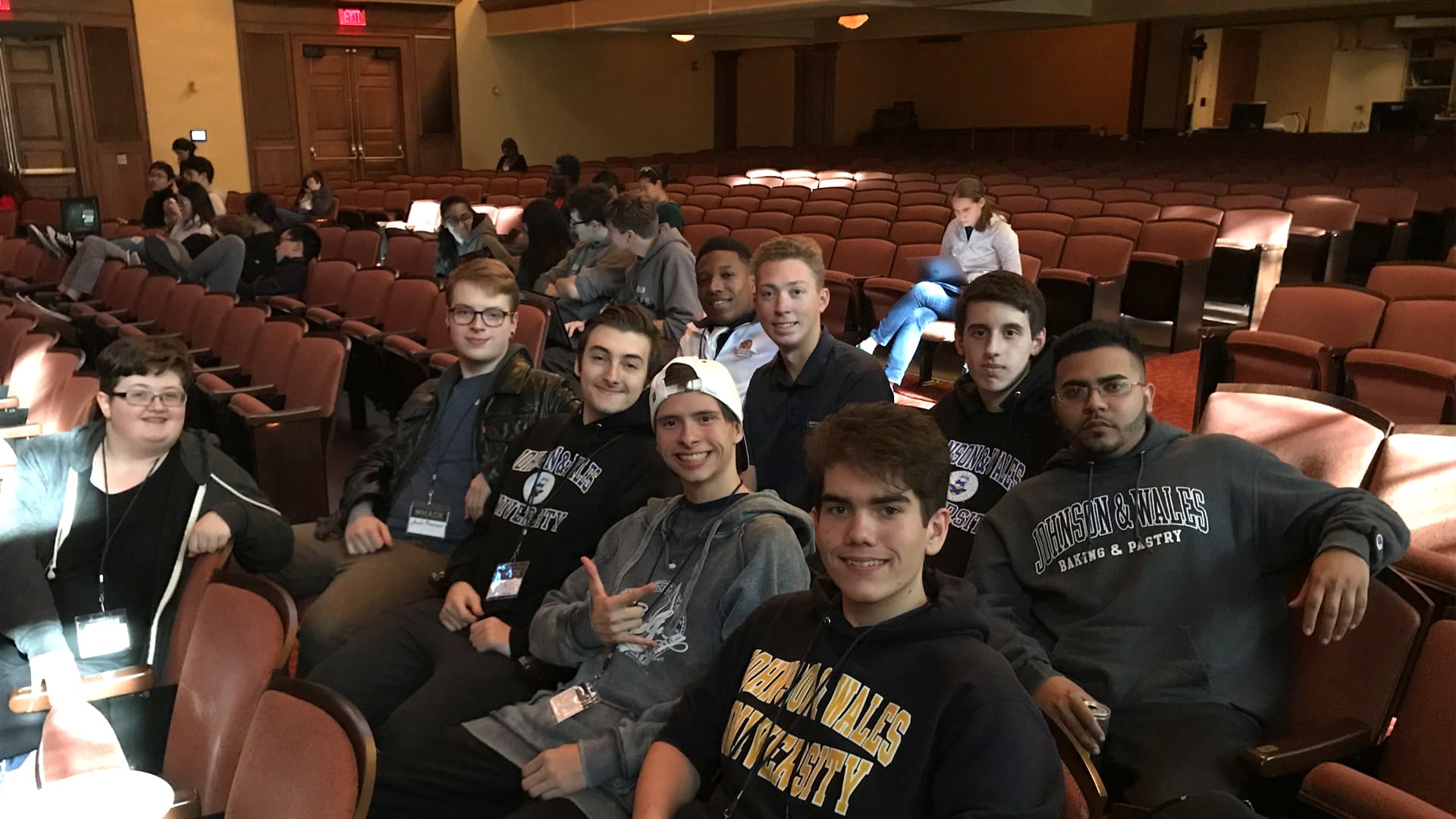
One hackathon at a time
Combined, the groups have participated, and submitted projects, in the following hackathons:
Hack@CEWIT 2018: IoT & Security at Stony Brook University, Feb 16-18, 2018
Project Name and Focus: Alexa Network Interface — Monitors all connected devices through the Amazon Alexa. Award: Amazon Web Services, Best Use of AWS.
PerkinsHacks 2018 April 13-14, 2018 Project Name and Focus: iSee — Using Microsoft’s Seeing AI app to help narrate everything around with the help of sonar technology. Award: Honorable Mention.
SBUHacks 2018 at Stony Brook University, Sept 14-15, 2018
Project Name and Focus: Get Off My Lawn — Keeping browser hijackers off your property with the use of geofencing and multilayer authentication. Award: Galactic Security Hack Winner.
2018 URI HealthHacks at University of Rhode Island, Sept 22-23, 2018 Project Name and Focus: Bend Sense — A biometric flex sensor which can be applied to different parts of the body to help monitor and increase compliance with prescribed post-care physical therapy routines. Award: Third place (cash prize $250).
HackUMass VI at UMass Amherst, Oct 12-14, 2018
Project Name and Focus: LazyWire — A microrobot that runs wire quickly, effectively and easily. Award: Liberty Mutual Challenge to improve people’s lives.
Big Red/Hacks Fall 2018 at Cornell University, Oct 19-21, 2018
Project Name and Focus: Lady in Between (LIB) — Stopping man in the middle attacks through the use of Watson Cloud AI.
HackHarvard 2018 at Harvard University, Oct 19-21, 2018
Project Names and Focus: Flush No More — A project that uses a capacitive sensor built into a tile embedded into the floor of a bathroom stall — you’ll never touch a dirty surface in a public bathroom again.
IceBreakers — Streamlining data about your favorite National Hockey League team using selfies.
Whack 2018 at Wellesley College, Nov 2-4, 2018
Project Names and Focus:
Bait Phisherman — Phish become the Phishermen: attackers get more than just what they’re after.
Viridian — Socially incentivizing a greener world through a mobile app which aims to reduce the user’s carbon footprint by calculating a carbon score from multiple sets of data.
HackHolyoke 2018 at Mount Holyoke College, Nov 2-4, 2018
Project Name and Focus: Firewatch — A new way to tag buildings and areas in danger of wild fires before and after they happen, warning people of danger. Award: Best IoT Hack using a Qualcomm Device.
